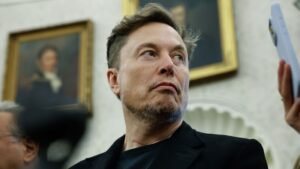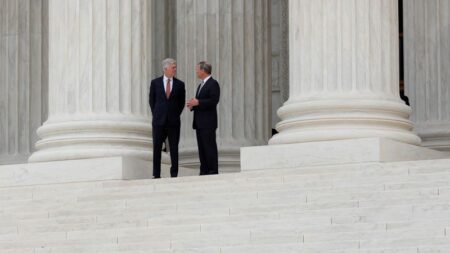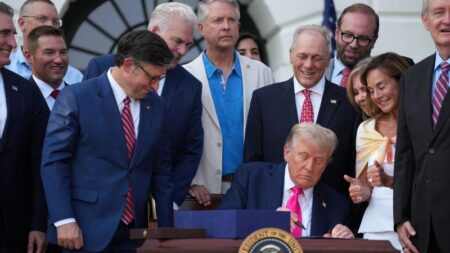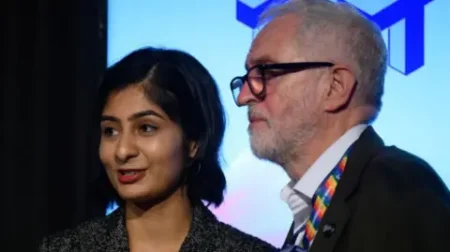Billionaire entrepreneur Elon Musk recently announced the formation of a new political entity, termed the “America Party,” marking a significant departure from his previously close ties with former President Donald Trump. This announcement came on Saturday and followed a contentious relationship that saw Musk asserting his discontent with Trump’s ambitious domestic policy bill, which Musk claims would exacerbate national debt. His declaration on social media platform X indicated a desire to combat what he described as a one-party system leading to economic waste, advocating instead for a restoration of personal freedom among American citizens.
Musk, who has been a prominent financier of Trump’s 2024 presidential campaign, had long been regarded as a close advisor to Trump, particularly in efforts aimed at curtailing government inefficiency. However, his recent criticism of what Trump labeled a “big beautiful bill” was rooted in concerns that it would contribute trillions to the federal deficit, leading to a significant rift between the two men. Although there appeared to be a reconciliation at one point, following Musk’s retraction of some of his incendiary comments about Trump, the discord has reignited with the passage of the contentious bill into law.
Musk’s public dissatisfaction with Trump’s legislative agenda has been a driving force behind his decision to explore the possibility of forming a separate political party. However, the technical and legal steps necessary for establishing a new political entity are still unclear; as of recent filings with the Federal Election Commission (FEC), there is no indication that Musk has initiated any formal processes to register his party. Despite this uncertainty, Musk envisions a political platform that champions fiscal conservatism and advocates for reduced government spending. Yet, additional details about the specific policies or principles of the America Party remain largely undisclosed.
While both Musk and Trump have historically aligned on various social issues, Musk has taken a position against the prevailing Republican strategies, which he perceives as leading to “debt slavery.” This aligns with a broader criticism of the entrenched two-party system in the United States, which has received mounting scrutiny from various factions across the political spectrum. Observers note that attempts to establish third-party movements over the last century have sporadically faltered, citing historical contexts such as Ross Perot’s independent campaign in 1992, which although garnered substantial popular support, failed to secure electoral victories.
Political analysts have highlighted the inherent challenges in creating a new political party within the existing American electoral framework. According to experts in campaign finance and political science, the hurdles include both financial requirements and the lack of willingness from voters and prospective candidates to support alternative movements.
In a bid to establish the America Party as an influential political player, Musk has signaled intentions to actively engage in the upcoming midterm elections. His strategy includes identifying a limited number of House and Senate races to support potential candidates that align with his newly formed party’s vision. This approach reflects Musk’s ambition to impact the electoral process from grassroots levels.
In response to Musk’s burgeoning political ambitions, Trump has issued his own threats, suggesting that the government may reassess its substantial contracts with Musk’s various enterprises. His remarks have framed Musk’s previous leadership of the Department of Government Efficiency as a potential liability.
As these political dynamics unfold, the eyes of observers, supporters, and critics alike are fixed on Musk’s next moves and the implications of a third party in America’s political landscape. The developments over the next few months will likely shape the contours of its political environment, exploring the limits of party loyalty and individual brand influence within the American electoral system.











